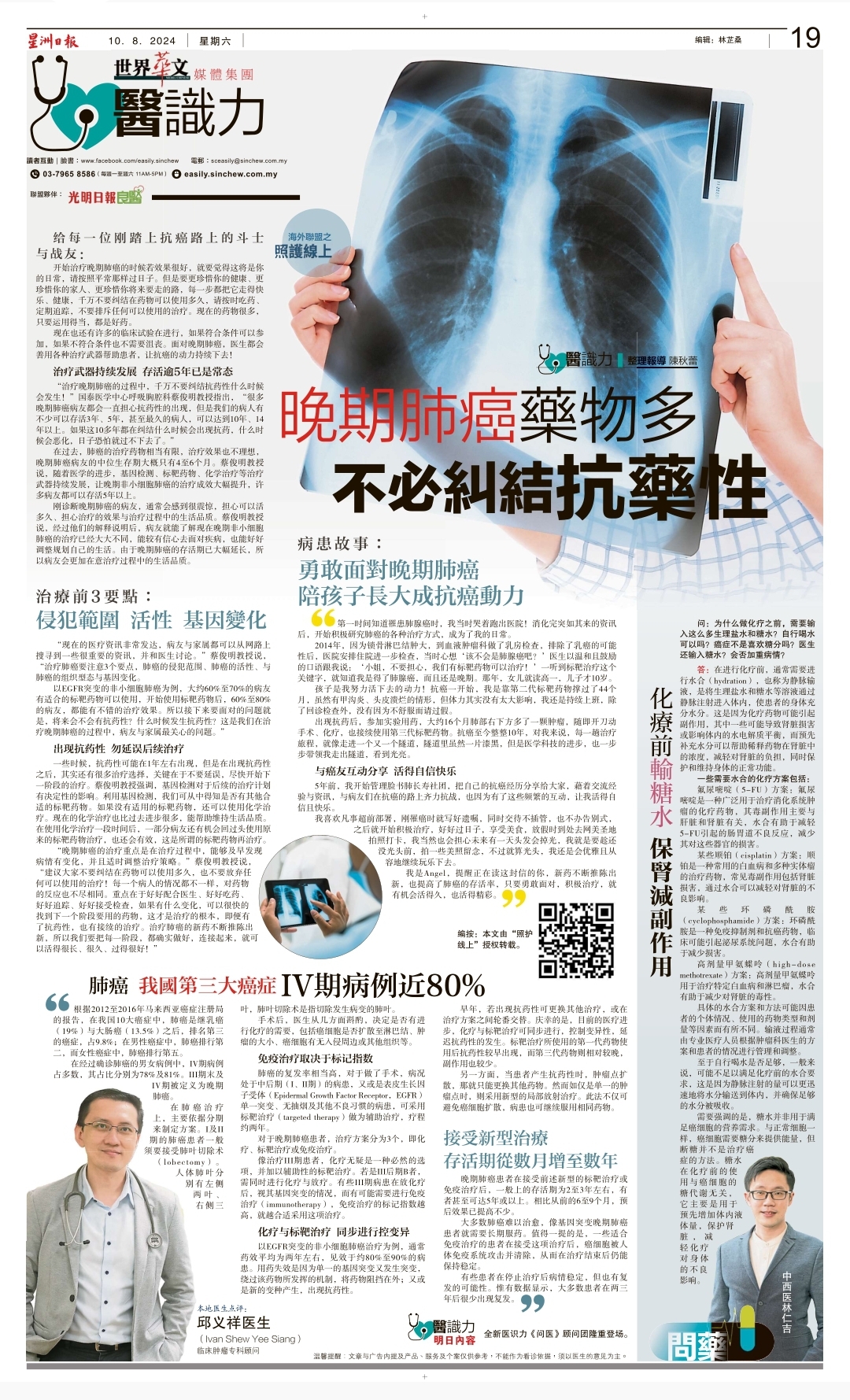Advanced Lung Cancer Drugs Abound, No Need to Struggle with Resistance
10 August 2024

Dr Ivan Shew Yee Siang commented on the article “Care Online” on the topic of lung cancer.
Lung cancer - The Third Most Common Cancer in Malaysia, With Nearly 80% of Stage IV Cases
According to the Malaysian Cancer Registry's report from 2012 to 2016, lung cancer is the third most prevalent cancer among the top 10 cancers in the country after breast cancer (19%) and colorectal cancer (13.5%), accounting for 9.8% ; lung cancer is the second most prevalent cancer among males and the fifth most prevalent cancer among females.
Stage IV lung cancer predominates in 78% and 81% of diagnosed lung cancer cases in both men and women, with end-stage III and stage IV defined as advanced lung cancer.
Immunotherapy Depends on Marker Index
The recurrence rate of lung cancer is quite high. For patients who have undergone surgery and are in the middle to late stage (Stage I or II), or those who have a single mutation in the Epidermal Growth Factor Receptor (EGFR), and who do not have any smoking or other unhealthy habits, targeted therapy can be used as an adjuvant treatment. For patients with advanced lung cancer, the course of treatment is about two years. For patients with advanced lung cancer, there are three treatment options, namely chemotherapy, targeted therapy or immunotherapy.
Synchronisation of Chemotherapy and Targeted Therapy for Mutation Control
In the case of EGFR-mutated non-small cell lung cancer, for example, drug efficacy usually lasts about two years on average and is seen in about 80% to 90% of patients. Drug failure occurs when a single mutation mutates again, bypassing the drug's mechanism of action and blocking the drug, or when a new mutation arises and resistance develops.
In the early years, if resistance emerged it could be replaced with other treatments or alternated between treatment regimens. Thankfully, with current medical advances, chemotherapy and targeted therapies can be administered in tandem to control variability and delay the onset of resistance. The first generation of drugs used in targeted therapy show resistance earlier after use, while third generation drugs are relatively later and have fewer side effects.
Survival Increases from Months to Years after Receiving New Types of Treatments
After receiving the aforementioned new targeted therapy or immunotherapy, patients with advanced lung cancer generally have a survival period of about two to three years, and some even have a survival period of five years or more. This is a much improved prognosis compared to the previous 6 to 9 months.
Most lung cancers are difficult to cure, like gene mutation advanced lung cancer patients need long-term medication. It is worth mentioning that some patients who are suitable for immunotherapy are attacked and cleared of cancer cells by the body's immune system after receiving this treatment, thus remaining stable even after the treatment is over.
Source: Sin Chew Daily





